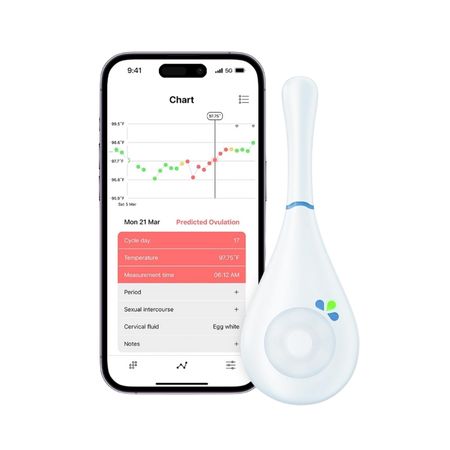
If you’ve ever wondered about the possibility of conceiving to have a baby on New Year (January 1st), you’re not alone. Many couples have specific dates in mind for their child’s birth, whether it’s to commemorate a special occasion or simply for the joy of starting the new year with a new addition to the family. In this article, we will explore the factors to consider when aiming to have a baby on New Year, including estimating the conception date, the accuracy of due dates, and the challenges of pinpointing the exact moment of conception.
Estimating the Conception Date
To estimate the conception date to have a baby on New Year, you can count back 266 days from the due date. According to one source, the average human gestation period is 266 days. However, it’s important to note that due dates are not always accurate, and only about 4% of women give birth on their due date. Therefore, while this method can provide an estimation, it’s not a foolproof way to determine the exact conception date.
Using a Conception Calculator
A conception calculator can be a helpful tool in estimating the conception date based on the first day of your last menstrual period (LMP) and the length of your menstrual cycle. These calculators take into account the typical length of the menstrual cycle and use it to approximate the date of ovulation and potential conception. For example, if your LMP was on March 26th and your cycle length is 28 days, your estimated due date would be New Year, and your estimated conception date would be April 9th.
Due Date Accuracy
It’s essential to remember that due dates are not always accurate. The estimated due date is based on the assumption that a woman has a regular 28-day menstrual cycle and ovulates on the 14th day of her cycle. However, this is not the case for every woman. Menstrual cycles can vary in length, and ovulation may occur earlier or later than the typical 14th day.
Factors such as stress, hormonal imbalances, and certain medical conditions can also affect the accuracy of due dates. Additionally, ultrasounds used to determine gestational age in early pregnancy have a margin of error of about one week. As a result, the due date can shift slightly based on these factors and medical assessments.
Pinpointing the Exact Moment of Conception
Determining the exact date of conception can be challenging, as it requires knowing precisely when ovulation occurs. Ovulation typically happens around 12 to 16 days before the start of the next menstrual period. However, the timing of ovulation can vary from woman to woman and even from month to month for the same individual.
Several methods can help track ovulation, including monitoring changes in cervical mucus, using ovulation predictor kits, and tracking basal body temperature. While these methods can provide valuable insights, they are not foolproof and may not pinpoint the exact moment of conception.
When To Conceive to have a Baby on New Year
If you’re determined to have a baby on New Year, you can use a reverse due date calculator to determine when you will need to conceive. These calculators work by inputting the desired due date and counting back the number of weeks of pregnancy to determine the potential conception date. However, it’s crucial to understand that there is no guarantee that you will deliver on the exact date calculated. The timing of labor and delivery can vary, and babies often have their own plans.
Time Your Conception Perfectly with This Tracker

Conclusion
If you dream to have a baby on New Year, estimating the conception date can be an exciting endeavor. While counting back 266 days from the due date and using conception calculators can provide an estimation, it’s important to keep in mind that due dates are not always accurate, and determining the exact moment of conception can be challenging.
Rather than fixating solely on a specific birthdate, it’s essential to focus on overall fertility, health, and the joy of bringing a new life into the world. Embrace the journey of parenthood, seek professional guidance if needed, and remember that the love and happiness a child brings are not tied to a particular date.
So, whether you have a baby on New Year or any other day, they will be a cherished blessing in your life. Treasure each moment and celebrate the miracle of life, no matter when it happens.
Frequently Asked Questions (FAQs)
Is it possible to plan the exact date of conception to have a baby on New Year birth?
Planning the exact date of conception is challenging, as it depends on various factors such as the regularity of your menstrual cycle and the timing of ovulation. While you can use methods like a reverse due date calculator to estimate the potential conception date, it’s important to remember that there are no guarantees. Nature has its own timeline, and factors like sperm viability, fertilization success, and implantation can affect the actual date of conception.
Can I increase my chances of conceiving on a specific date?
While you can try various methods to increase your chances of conceiving, such as tracking ovulation, timing intercourse, and maintaining a healthy lifestyle, it’s important to understand that the timing of conception is not entirely within your control. It’s advisable to focus on overall fertility and health rather than fixating solely on a specific date.
What are the factors that affect due date accuracy?
Several factors can affect the accuracy of due dates. These include irregular menstrual cycles, uncertainty about the date of the last menstrual period, variations in the length of gestation, and individual differences in the timing of ovulation. Additionally, medical interventions like assisted reproductive technologies and induced labor can also impact the estimated due date.
Are there any risks associated with trying to conceive for a specific date?
There are no inherent risks associated with trying to conceive for a specific date. However, it’s important to maintain a balanced perspective and not let the desire for a particular birthdate overshadow the overall journey to parenthood. Fertility can be influenced by various factors, and it’s essential to prioritize your health and well-being throughout the process.
Can I rely on online conception calculators for accurate results?
Online conception calculators can provide estimates based on general assumptions about menstrual cycles and ovulation. While they can be helpful as a starting point, it’s important to remember that they are not personalized to your specific situation. If you have concerns about conception or need more accurate information, it’s always recommended to consult with a healthcare professional.
What should I do if I’m having difficulty conceiving?
If you’re having difficulty conceiving, it’s advisable to consult with a fertility specialist or healthcare provider who can assess your individual situation. They can conduct tests and evaluations to identify any underlying issues that may be affecting your fertility and provide guidance on potential treatments or lifestyle changes that can improve your chances of conception.












